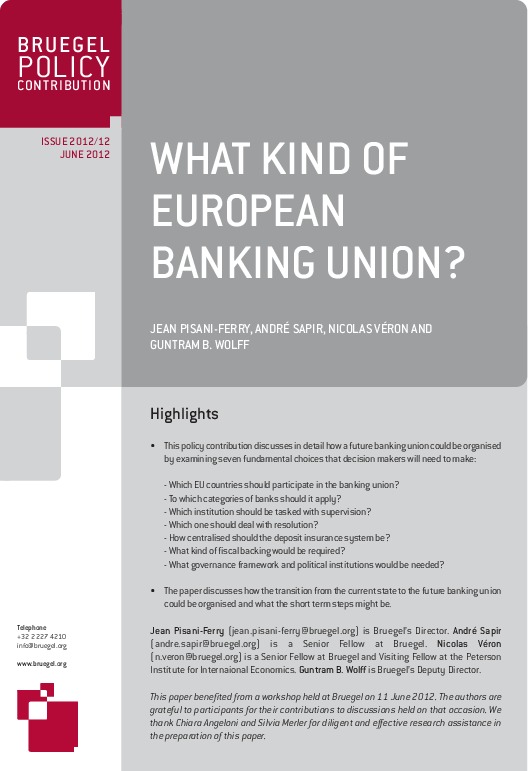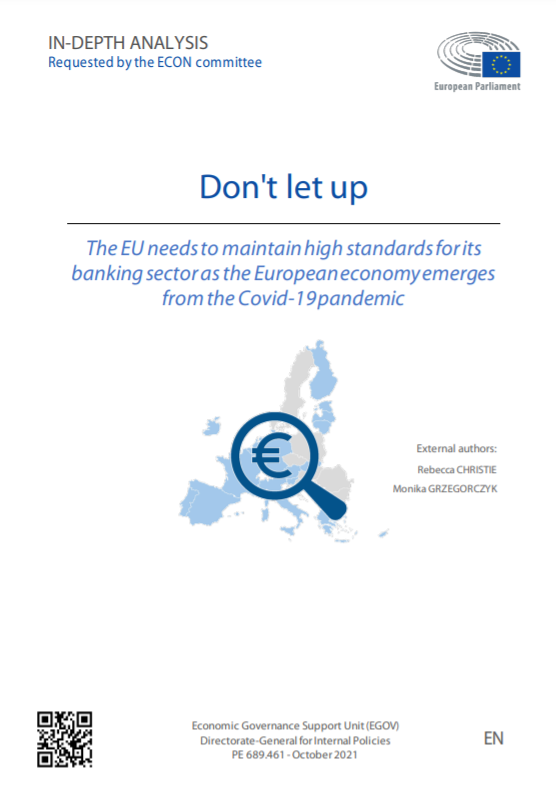Policy Contribution
What kind of European banking union?
This policy contribution discusses in detail how a future banking union could be organised by examining seven fundamental choices that decision makers will need to make.
This paper discusses the creation of a European Banking Union. First, we discuss questions of design. We highlight seven fundamental choices that decision makers will need to make: Which EU countries should participate in the banking union? To which categories of banks should it apply? Which institution should be tasked with supervision? Which one should deal with resolution? How centralised should the deposit insurance system be? What kind of fiscal backing would be required? What governance framework and political institutions would be needed?
In terms of geographical scope, we see the coverage of the banking union of the euro area as necessary and of additional countries as desirable, even though this would entail important additional economic difficulties. The system should ideally cover all banks within the countries included, in order to prevent major competitive and distributional distortions. Supervisory authority should be granted either to both the ECB and a new agency, or to a new agency alone. National supervisors, acting under the authority of the European supervisor, would be tasked with the supervision of smaller banks in accordance with the subsidiarity principle. A European resolution authority should be established, with the possibility of drawing on ESM resources. A fully centralized deposit insurance system would eventually be desirable, but a system of partial reinsurance may also be envisaged at least in a first phase. A banking union would require at least implicit European fiscal backing, with significant political authority and legitimacy. Thus, banking union cannot be considered entirely separately from fiscal union and political union.
The most difficult challenge of creating a European banking union lies with the short-term steps towards its eventual implementation. Many banks in the euro area, and especially in the crisis countries, are currently under stress and the move towards banking union almost certainly has significant distributional implications. Yet it is precisely because banks are under such stress that early and concrete action is needed. An overarching principle for such action is to minimize the cost to the tax payers. The first step should be to create a European supervisor that will anchor the development of the future banking union. In parallel, a capability to quickly assess the true capital position of the system’s most important banks should be created, for which we suggest establishing a temporary European Banking Sector Task Force working together with the European supervisor and other authorities. Ideally, problems identified by this process should be resolved by national authorities; in case fiscal capacities would prove insufficient, the European level would take over in the country concerned with some national financial participation, or in an even less likely adverse scenario, in all participating countries at once. This approach would require the passing of emergency legislation in the concerned countries that would give the Task Force the required access to information and, if necessary, further intervention rights. Thus, the principle of fiscal responsibility of respective member states for legacy costs would be preserved to the maximum extent possible, and at the same time, market participants and the public would be reassured that adequate tools are in place to address any eventuality.





















